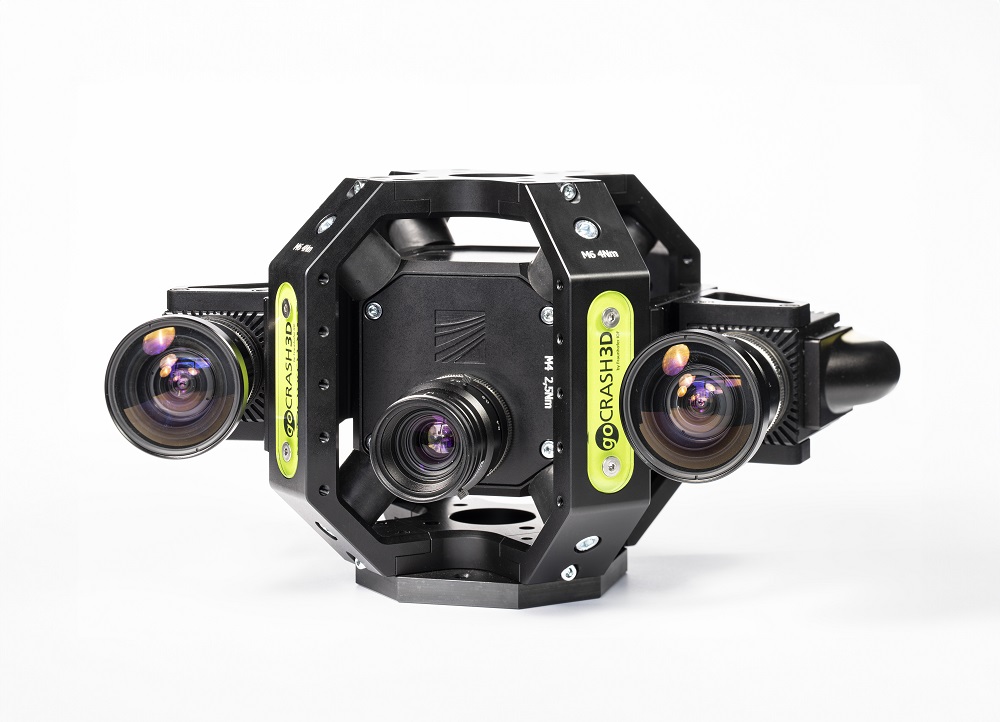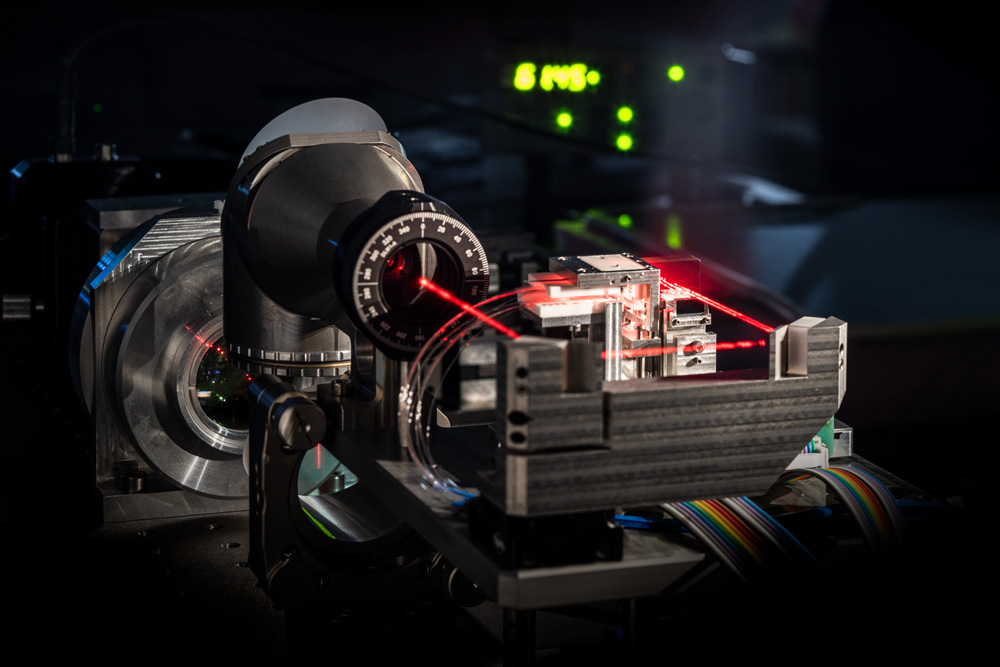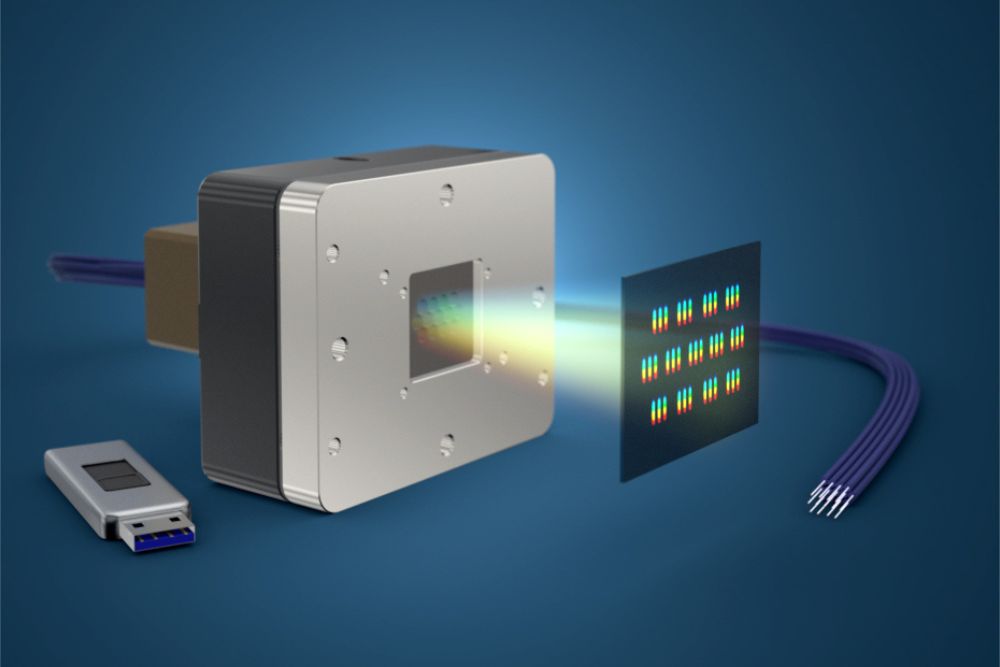VISION | October 8 – 10, 2024
Fraunhofer IOF at VISION
Fraunhofer Institute for Applied Optics and Precision Engineering IOF drives innovation and develops future technologies in a vast field of photonics research, e.g. high-speed capture of 3D data or quantum imaging with undetected photons. From October 8 to 10, our institute will be presenting its recent developments at the VISION in Stuttgart.
We cordially invite you to visit us at the world's leading trade fair for machine vision. You will find us in hall 10, booth 10G92.
Learn more about our exhibition highlights below.
Our researchers are very much looking forward to meeting you!
Themes & Exhibits at VISION 2024
At the VISION fair in Stuttgart, our institute is going to present its latest developments in optics and photonics future technologies. From array projectors in the automotive sector to 3D real-time scanners in production and quantum technologies for tap-proof communication Fraunhofer IOF offers a vast range of applications.
High-Speed-3D-measurement in crash tests
Fraunhofer IOF has been developing systems for the high-speed capture of 3D data for many years. With goCRASH3D, the Jena team is now presenting a new system that records 3D data during crash tests inside the test vehicle. In the medium term, the technology for 3D high-speed recordings is an excellent solution for the growing safety requirements in the automotive sector.
Quantum-enhanced imaging with undetected photons
A quantum imaging system uses undetected light for video-rate detection. A nonlinear crystal generates correlated beams via spontaneous parametric down-conversion (SPDC) within an SU(1,1) Michelson interferometer. These beams enable wide-field imaging, with the signal beam detected in the visible range while illuminating the object with IR or THz wavelengths, thus bypassing limitations of detection technologies in extreme wavelengths.
Compact Multispectral Camera Systems for High-Resolution Imaging
Multispectral cameras face the challenge of simultaneously capturing high-resolution images across different wavelengths, typically requiring large scanning systems. An innovative multi-aperture approach using a micro-optical array lens enables the development of a compact system that simultaneously captures images in nine spectral channels. In addition to spatial and spectral information, polarization can also be analyzed. Potential applications include sorting, production monitoring, quality control, and environmental and agricultural analysis.
Fiber-coupled array spectrometer
A miniaturized system is introduced for simultaneous spectroscopic analysis at multiple measurement positions. It features a micro-optical array of grating spectrometers and employs a commercial image sensor as a detector. This design results in a compact optical system with a track length of only about 10 mm, making it adaptable for both imaging systems and fiber-based spectroscopy.



